Bodh Shiksha Samiti (hereafter referred to as Bodh) evolved from experiences of collective action that helped establish a community school or Bodhshala in Jaipur (Rajasthan, India). The school, initiated in 1987, was the result of a unique partnership between the Gokulpuri urban slum community and a group of likeminded men and women. The Bodhshala reaffirmed the group’s belief that quality education was an inalienable right and that deprived communities possessed the strength to translate this vision into reality for their children. This belief has continued to shape all institutional efforts.
Today, Bodh is recognised as a pioneer in the field of education for the urban deprived with growing expertise in the rural domain as well. It has also gained the stature of a resource agency for providing training and other support focusing on aspects such as child-centered pedagogy, and curriculum community involvement in education, etc. Its key strength lies in its emphasis on learning from varied community settings and classrooms. This process of learning is aided by its network of Bodhshalas (urban and rural), the innovative Manas Ganga Schools (Senior Secondary Residential Girls School, Pre and Primary School) and the work with the government schools.
Overall, Bodh is engaged in programme implementation (in urban slums and rural habitations), evolving and refining teaching-learning processes, professional development, and other stakeholder training, research and documentation, networking and policy advocacy. It reaches out to more than 26,000 deprived children (urban and rural) through its Bodhshalas and government schools in Jaipur and Alwar districts, Rajasthan, India. It has touched the lives of many more children through partnerships with likeminded NGOs and agencies across the country.
All this has been possible through the collective efforts of many stakeholders. These include communities, local self-governments (rural and urban), the Government at central and state levels, teachers, programme partners, academic experts and institutions, countless supportive individuals and many other bodies/agencies. Above all, the active participation and interest of children have lent a special (and continuous), sense of vibrancy, joy, and fulfillment.
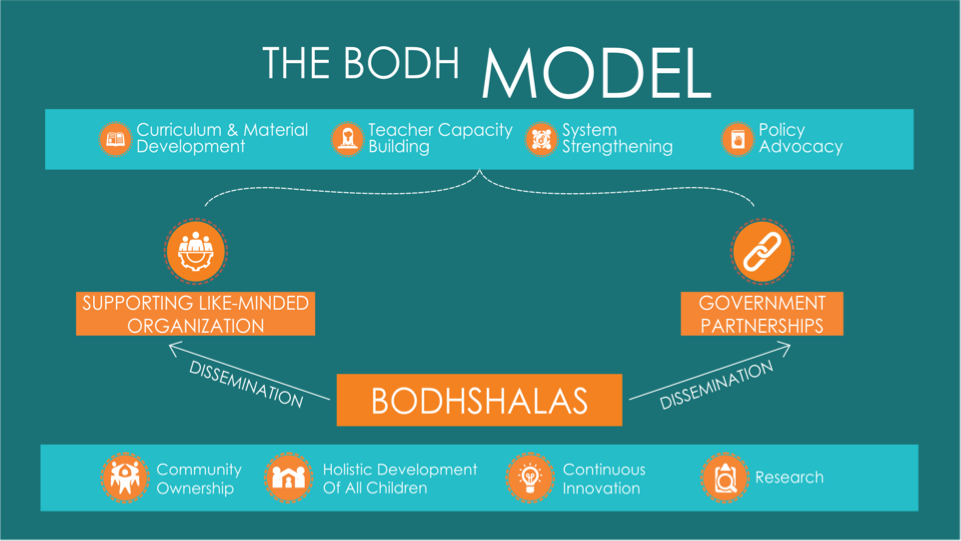
Bodh believes that the present system of education has some fundamental problems in both structure and practice. Bodh work present itself as an alternative to the existing mainstream idea and practice of differentiated quality and standards of education for children with different backgrounds.
It stands with the common community school system for all that is lead, managed and owned by parents, communities, teachers and children collectives. Schools, for Bodh, are community institutions and should be sites social learning.
Bodh is and further intends to be, one of the many voices for the UNREALIZED DREAM OF DEMOCRACY in EDUCATION. By this, it means-
- Similar quality of education, through the same kinds of schools, for all the children, irrespective of their backgrounds.
- No discrimination nor dilution in the aims of education set for children, the learning experiences provided and resources made available.
- Schools should be responsive to the socio-emotional needs of the children and communities and should be accountable and empowered to ensure the success of all children.
- Schools should propagate the development of scientific, humane, social and rational outlook.
- Teachers should act as change agents in the communities.
- Education processes should understand, appreciate and respond to each child’s needs and context.
- Education should be holistic, integrated and should balance academic, socio-economical, aesthetic, physical and vocational aspects.
- Schools should evolve as community lead accountable institutions.
RUNNING & SUSTAINING COMMUNITY SCHOOLS
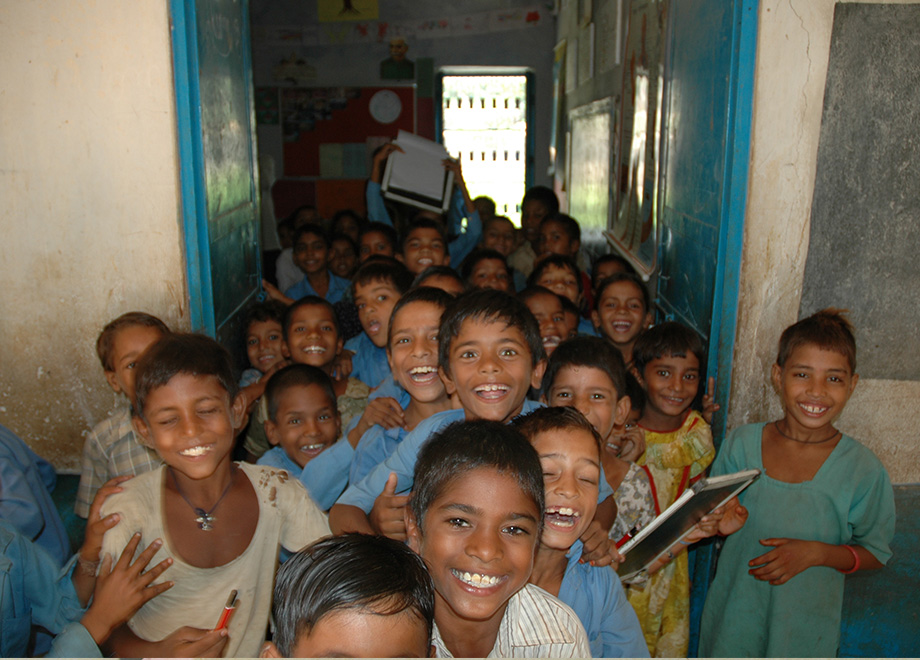
Within the larger organizational framework, Community Bodhshalas play the most important role of not only being a critical demonstration of common community institutions but they are the ground for learning and innovation. They represent actual possibility with the mission of ensuring common effective qualitative learning in children which inculcates the ability of scientific thinking and critical reasoning for the prejudiced traditions of society. These community schools have been established with the involvement of community members.
At present Bodh is running 40 community schools (33 Rural and 7 Urban) with internal structures and processes-based principle of democratic participation and community ownership to ensure accountability and school policy for equitable quality education for all. Community Bodhshala is not restricted within the sphere of academic development of the children rather we believe that it should function as a community learning institution where teachers are agents of social change and through their interaction communities also develop a critical understanding of their situation. This is realized with discussions on the mainstream idea of education, child-rearing, issues of citizen rights and fostering various parents and community groups.
They represent a possibility that underprivileged masses can evolve better alternatives if they engage in critical and collective action. These schools are in that sense represent a real aspiration for the realization of the core objective of universalization of equitable quality education.
GOVERNMENT PARTNERSHIPS
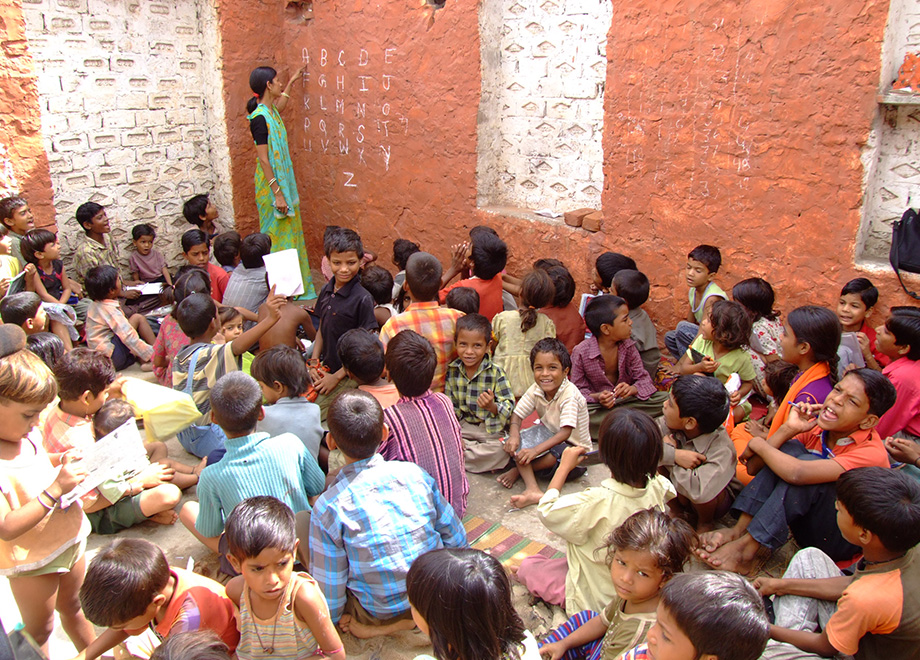
The public education system is the main system in India for the masses and especially for the underprivileged sections. At the same time, it is the system that is wedded to the constitutional ideals of universalization of education as a common system. Given these broader alignments and the fact that, if the stated objectives of Bodh have to be realized for the masses, it can only be though a larger public system based on ideals of democracy and participation. Therefore, Bodh as an organization that is committed to the improvement of the public system and facilitates the process of its evolution in the real system which can actualize the ideas of equity and quality education for all. Bodh has been in partnership with the government mainstream system working on many programs aimed at reforming curriculum, pedagogy, materials, teacher training, etc. and developing schools with active community partnerships for the last 25 years.
Though government schools are providing access to education to a greater number of pupil to provide an equitable standard of learning and quality of education for every child nationwide, there is a long way to go. We perceive that our work with the government systems and schools is of equal importance since working with a few communities is not going to resolve the issues related to education on a large scale and the public system should be strengthened so it can become a real expression of the general will.
SUPPORTING OTHER EDUCATIONAL INSTITUTIONS
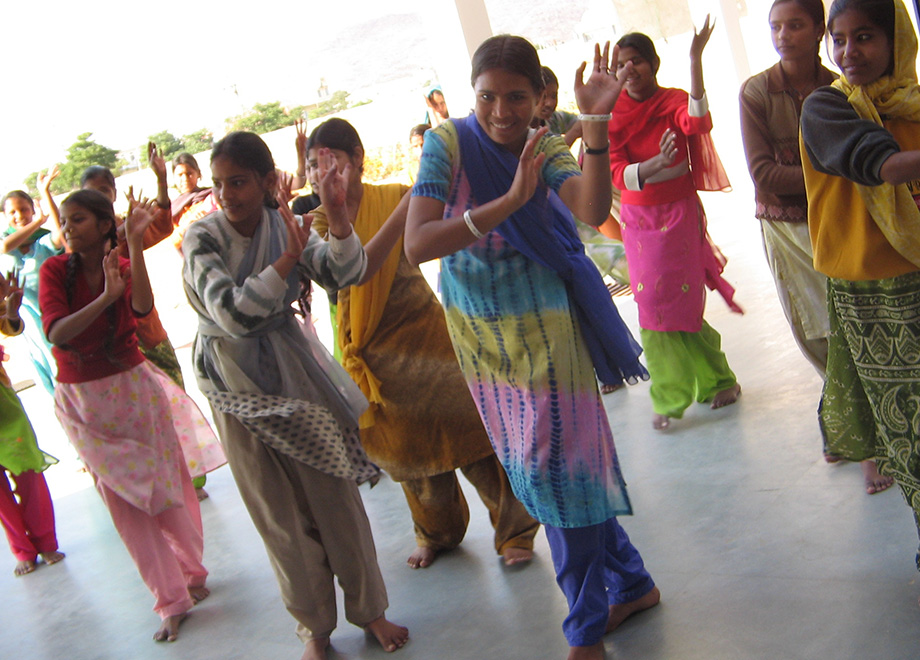
Bodh also works with likeminded educational organizations to evolve a network of organizations that represent civil society initiatives for better education of children. We extend support through extending technical support to build capacities, by providing teachers training to enhance the pedagogy, developing materials and curriculums, programmatic support and sharing resources that are present with us. Bodh believes that such initiatives and a network of such like–minded organizations are an essential part of the process of developing a critical narrative for policy advocacy and therefore Bodh is committed to partnering with all organizations working with common principles. This approach also indirectly increases the reach of Bodh with its methodology benefitting children in areas and geographies where Bodh cannot reach itself.
The organizations which share common principles and are committed to the idea of ensuring equitable qualitative learning for all, Bodh strengthens them by providing technical support to grow and work on a large scale to ensure a great exposure of learning for the children at a larger scale. Over the last three decades Bodh has partnered and extended its technical support to more than 100 organizations and at present Bodh is actively working with:
- Nabha Foundation (Punjab)
- Educate Girls
- Smantar
- Jatan Sansthan
- Sandhan
- Urmul Setu
- Urmul Seemant
- CECODECON
- Avanti
EQUITABLE QUALITY EDUCATION AS A RIGHT
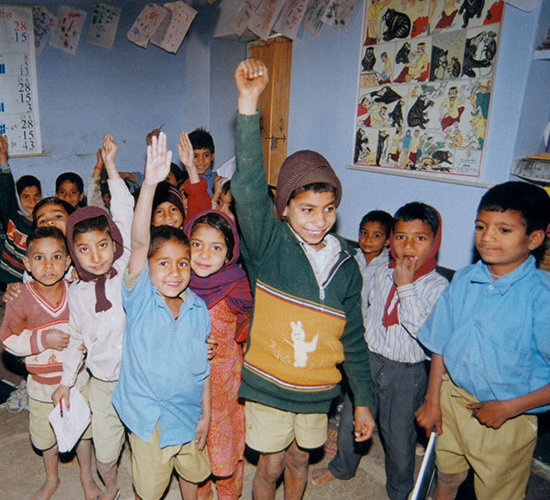
Children are born with the same dignity and rights but still, children belonging to lower classes remain deprived of their right to education. Hence, every child of every region, of any class or any background must be given a fair chance and equal opportunity to grow and realize one’s potential fully.
Inequity is manifested in many ways, for many children, it may be not having access to school for some it may be not learning much despite having access.
Equity in the classroom can be defined as giving students what they need to learn meaningfully. When teachers truly listen to students of all abilities and respect in the classroom is mutual between teacher and student, a productive classroom can be formed. An equitable education system helps all students to develop the knowledge and skills they need to be engaged and become productive members of society
Therefore, Bodh aims for promoting equality in educational institutions and preventing discrimination based on gender, race, disability, and background and educating students of all abilities and different backgrounds.
Hence equity and education is the right of every child.
COMPREHENSIVE DEVELOPMENT OF ALL CHILDREN
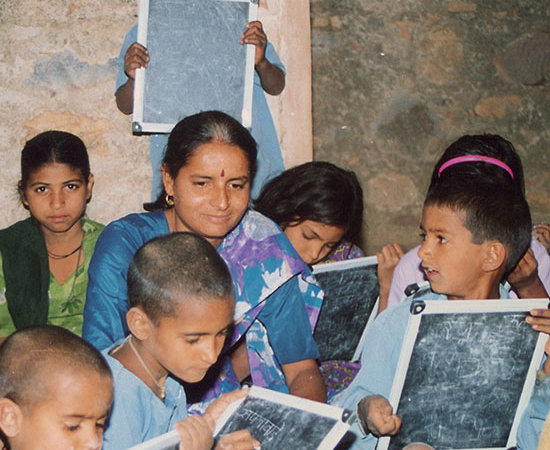
The realization of the potentials to the fullest of every child can be seen as the most important objective of the entire endeavor of education. Given the concerns of equity and quality being central to our work. We believe schools and education should provide a comprehensive framework to mitigate all forms of deprivation emanating from the background of children.
Curricular and extracurricular should be integrated to have a comprehensive curriculum. Whatever is taught in the class, children should be able to apply and infer in real-life situations. Instead of a different culture in the classroom than at home, learning and concepts of children should become strong enough to inculcate an ability to feel free and equal to put their doubts and queries in the classroom.
Therefore, Bodh also aims at teaching children to be entire citizens – which goes beyond teaching them to engage critically and constructively with social relatives. We must also teach them about how their freedom began and how they’re maintained. We must teach them that they can make a difference by infusing learning processes with values of becoming positive, democratic, contributing and an asset for the society.
SCHOOLS AS COMMUNITY INSTITUTIONS

To see equitable quality education as a right requires models and network of institutions which can realize this idea. When we look at the current situation, we find that we have a highly differentiated school system with different kinds of schools organized on the class lines, where every major economic section has a different type of school for itself.
At the top, education is only seen as a tool for competition producing industry suited high-cost human resources and at the bottom of the pyramid, we have a very dismal situation with regards to the quality of educational outcomes.
Community schools are search to find an answer to this actual problem of inequity and real quality at the very base of society and how institutions that can ensure universal equitable quality education can be realized which are inclusive, democratic and accountable in the true sense.
To resolve these problems, the idea of community school arose which focuses on qualitative academics and community ownership that leads to improved student learning, accountability. and a better learning environment. These schools are created with active contributions of the community of all kinds from land to labor to develop a genuine model of community ownership. Schools ensure a continuous dialogue with the community and leading role in the functioning of the schools seen as primary owner of the schools.
CHILDREN EVOLVE THEIR KNOWLEDGE
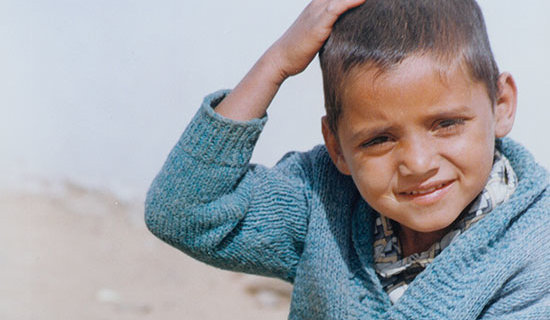
Children are naturally engaged in learning and actively exploring the world. Hence, they are evolving knowledge and learning effectively from their experiences and skills.
We believe that this natural disposition to learn and make meaning should be the foundation of all teaching-learning processes. This implies that learning is seen as a process of actively asking questions, critically observing and evaluating them, arriving at the conclusion, sharing and discussing the world. Hence, teaching should be done in a manner that does not hamper the natural curiosity or disposition of meaning-making and exploring rather it should improve it further effectively. To see children as active learners and explorers require a complete change in disposition and perspectives. It aims at taking learners on a fascinating journey where new questions are asked and new ideas are explored.
TEACHING AS A REFLECTIVE PRACTICE

As we are committed to the fullest development of the potentials of children and effectively mitigating the deprivation emanating from their contexts, we look at teaching as a creative and innovative practice.
As learner’s context differ so their dispositions, interests, and abilities. Hence, the teacher should understand all these aspects to ensure that all children learn and progress to realize their potentials and achieve their age-appropriate learning levels.
The teacher is not only an instructor but a facilitator who introduces the children to the world engaging them in the meaning-making process. The teacher should understand each student’s problem and innovate new methods of learning to lead them to meaningful learning, achievement, and success taking care of equity in the classroom and realizing their potentials to the fullest.
Reflective teaching is a practice of learning ‘thinking and improving about one’s teaching’. Teachers should think over their teaching practices, analyze how something was taught and how the practice might be improved or changed for better learning outcomes. Reflection is a basic part of teaching and learning, in that sense teaching also becomes a learning process. It promotes deep learning as well as the identification of personal and professional strengths and areas for improvement.
At the organizational level collective reflective processes encourage one to work with others, share best practice and draw on others for support. Ultimately, reflection makes sure all students learn more effectively as learning can be tailored to them to ensure equitable quality education for every child.
COOPERATION OVER COMPETITION
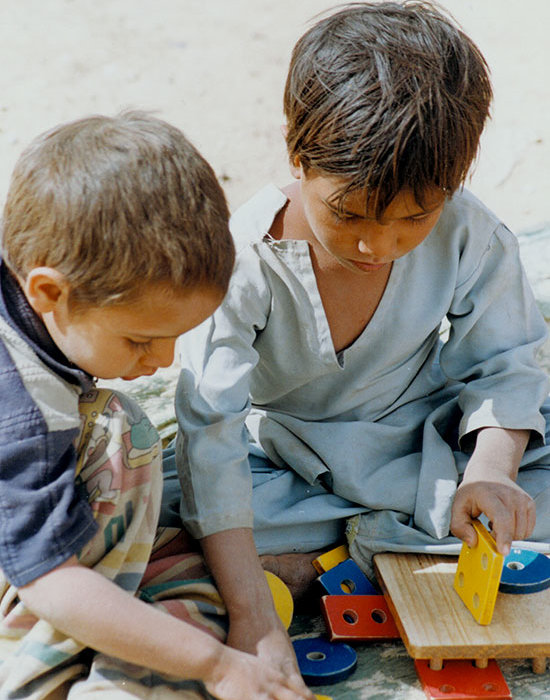
Generally, competition is seen as the main force driving the learner. Though contrary to general belief almost all researches, as well as our experiences suggest that a learning-centric cooperative culture is rather more effective. Specifically, the culture of competition increases individualism and to a great extent provides natural justification for inequity. Instead of competing Children should be taught to learn together through cooperative teaching-learning methods and help their classmates who are lagging and share their knowledge and arrive at more objective knowledge through mutual reflection and criticism. With regard to competition, we also believe that it plays an important role as well in motivating children to learn, through the traditional way of introducing competition is only comparative. This form of competition makes children only compare themselves with others and takes them away from the purpose of actual learning and only study for tests. Competition leads to outcomes but cooperation ensures student’s growth and is ultimately the route to success since they learn better when they work together.
Hence, we need to recognize the role of competition and redefine competitive processes as well. With competitions, children can become more independent and learn how to survive heading towards their working environment in the future. As for cooperation, children can learn to communicate with others to get the best solution to solve the problem together, as more minds are better than one.
When students work together as a batch/group and share information and resources, learning increases and results in comprehensive development.
PRIMACY OF SCIENTIFIC KNOWLEDGE AND CRITICAL ENGAGEMENT
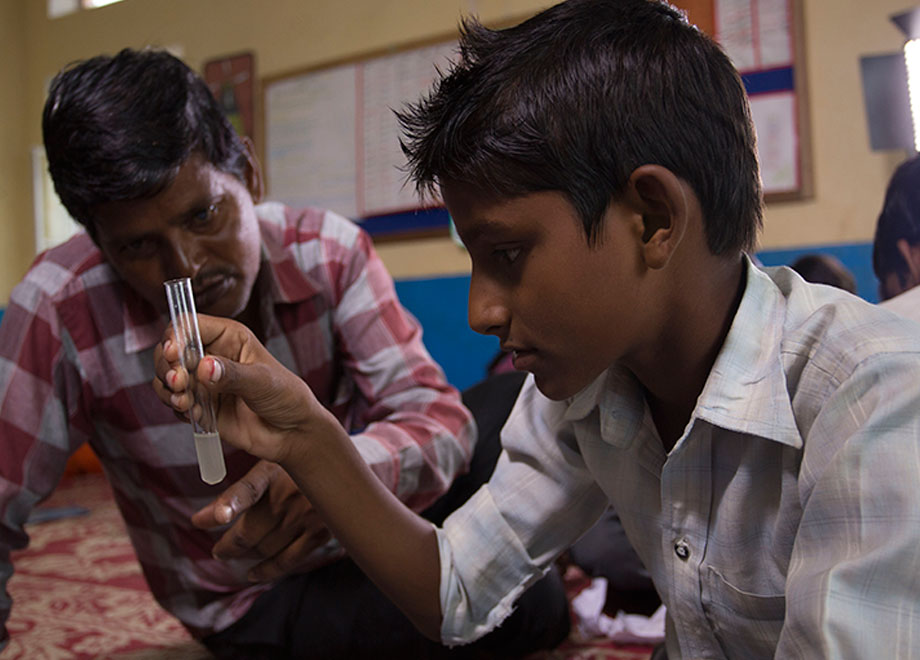
Given the broader objectives of education, it should introduce learners to a wide variety of thinking, inquiring and understanding the world. It should give broader exposure to different types of literature and modes of inquiry. But we still believe that in the entire human history the biggest and most revolutionary changes came about due to scientific thinking which led to many unpredictable unprecedented innovations and previously unimagined possibilities. Also, critical and scientific thinking about the social hierarchies and structure brought many changes and broke the prejudiced ideas of traditional dogma in social beliefs and social structure.
Therefore, the mainstream education system should also keep these ideas as the central objectives and focus on developing ability and dispositions in the children of thinking scientifically and looking at the world with critical reasoning to achieve progressive actions.
These ideas should be reflected in curricular design and pedagogical approaches and should actively engage children in developing a rational attitude based on critical thinking and active exploration of the world.

